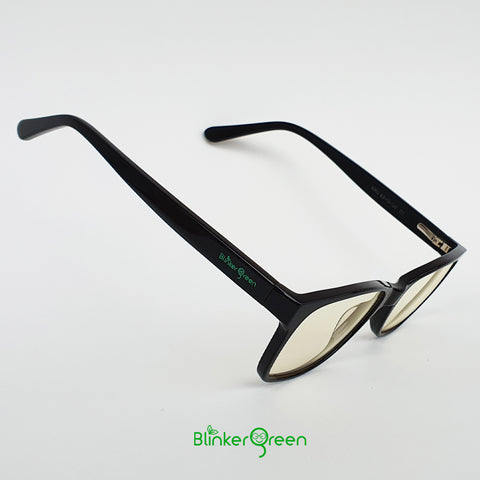What is Blue Light and how it affects your eyes
WHAT IS BLUE LIGHT?
Blue light is a range of the visible light spectrum, defined as having a wavelength between 400−495 nm. This short wavelength means that blue light is a type of high energy visible light, defined as having a wavelength between 400 and 450 nm.
Blue light sources are becoming increasingly common in today's environment. Exposure to blue light comes from a variety of technologies including computers, televisions, and lights. Much of the exposure arises from light emitting diodes (LEDs).
Increasingly, people are exposed to blue light via everyday technology.
HOW DOES BLUE LIGHT AFFECT YOUR EYES?
Digital eyestrain: Blue light from computer screens and digital devices can decrease contrast leading to digital eyestrain. Fatigue, dry eyes, bad lighting, or how you sit in front of the computer can cause eyestrain. Symptoms of eyestrain include sore or irritated eyes and difficulty focusing.
Retina damage: Studies suggest that continued exposure to blue light over time could lead to damaged retinal cells. This can cause vision problems like age-related macular degeneration.
EFFECTS OF BLUE LIGHT AND SLEEP
While light of any kind can suppress the secretion of melatonin, blue light at night does so more powerfully. Harvard researchers and their colleagues conducted an experiment comparing the effects of 6.5 hours of exposure to blue light to exposure to green light of comparable brightness. The blue light suppressed melatonin for about twice as long as the green light and shifted circadian rhythms by twice as much (3 hours vs. 1.5 hours).
In another study of blue light, researchers at the University of Toronto compared the melatonin levels of people exposed to bright indoor light who were wearing blue-light–blocking goggles to people exposed to regular dim light without wearing goggles. The fact that the levels of the hormone were about the same in the two groups strengthens the hypothesis that blue light is a potent suppressor of melatonin. It also suggests that shift workers and night owls could perhaps protect themselves if they wore eyewear that blocks blue light
WHAT CAN YOU DO TO PROTECT YOUR EYES FROM BLUE LIGHT?
- Use dim red lights for night lights. Red light has the least power to shift circadian rhythm and suppress melatonin.
- Avoid looking at bright screens beginning two to three hours before bed.
- If you are a hardcore gamer or use a lot of electronic devices at night, consider wearing blue-blocking glasses, to keep your eyes healthy.
- Expose yourself to lots of bright light during the day, which will boost your ability to sleep at night, as well as your mood and alertness during daylight
Sources: Bluelightexposed.com, Health.harvard.edu.
CHOOSE HIGH QUALITY BLUE LIGHT BLOCKING GLASSES FOR BEST EYE PROTECTION
Get 10% off your 1st order and FREE SHIPPING WORLDWIDE from BlinkerGreen Computer Eyewear.
Amber Lens
€59,99
Clear Lens
€49,99



